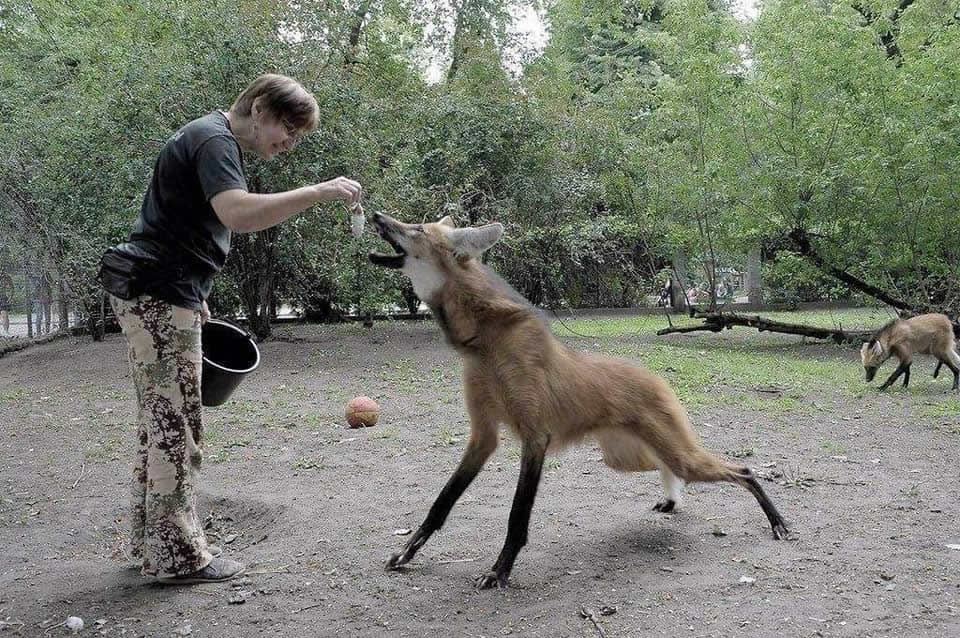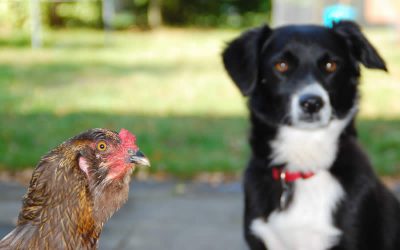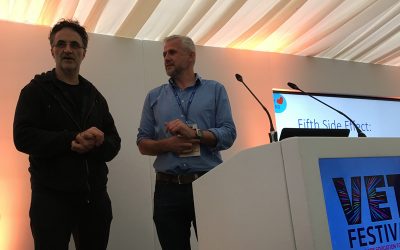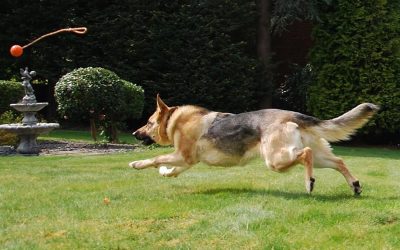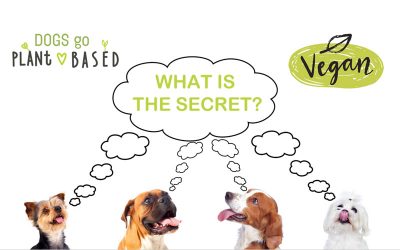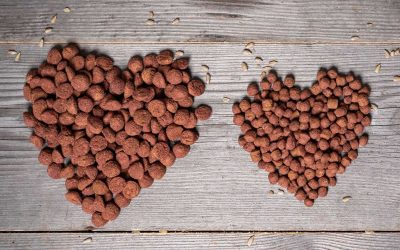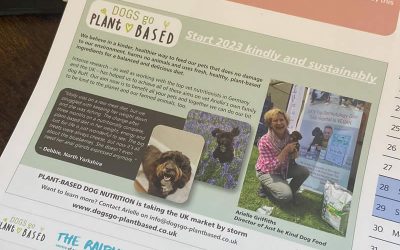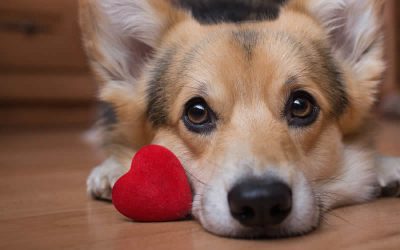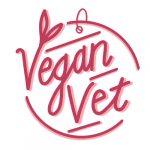Should this beautiful animal change the way we think about our dog’s nutrition?
This striking animal shown here in captivity; is a maned wolf (Chrysocyon brachyurus) and it is the largest canid in South America.
His marks resemble those of foxes, but he is not a fox or a wolf. It is the only species of the genus Chrysocyon (which means “golden dog”).
Although the maned wolf displays many fox-like characteristics, it is not closely related to foxes. It lacks the elliptical pupils in its eyes found distinctively in foxes. The maned wolf’s evolutionary relationship to the other members of the canid family makes it a unique and fascinating animal.
Why should a maned wolf hold the key to our dog’s nutrition?
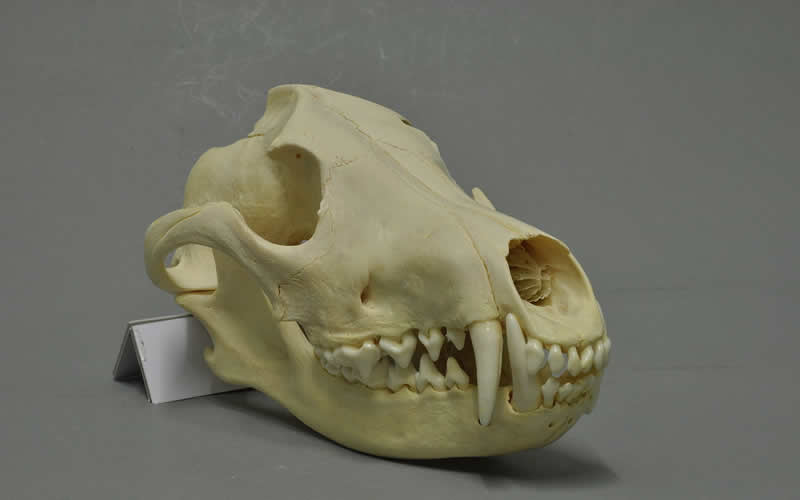
The skull of a maned wolf almost identical to that of our dog’s skull. As it does not kill or eat large prey, its upper carnassials (shearing teeth) are reduced, its upper incisors weak, and its canines are long and slender.
The maned wolf really blows the theory of our pet dogs needing meat in their diet completely out of the water. These beautiful and endangered ‘golden dogs’ (as they are neither fox nor wolf), share far more in common with our own pet dogs than the grey wolf.
They are classed as omnivores and live in the savannah of South America where they feed primarily on wolf apples that belong to the family Solanum – the same family as potatoes and tomatoes. These fruit are also eaten by humans in South America, but the maned wolf plays a very important role in the seed dispersal of these fruits.
Often, maned wolves defaecate on the nests of leafcutter ants. The ants then use the dung to fertilise their fungus gardens, but they discard the seeds contained in the dung onto refuse piles just outside their nests. This process significantly increases the germination rate of the seeds. They live beautifully in harmony with their environment and this delicate balance must be maintained.
They do hunt at night (typically small rodents and rabbits) but more than 50% of their diet is fruit and vegetable matter. Animals are more often consumed in the dry season as their first choice is vegetables!
Their eyes are similar to our dogs, they lack the jaw strength to be strong hunters (like our domestic dogs) and their footprints are very similar to our dog’s prints. They are parasitised by the same ticks and fleas as domestic dogs and they are also prone to catching the same viruses that we vaccinate our pets against. Their gestation period is the same length and when pups are born, they are born blind initially like our pups and the mother will regurgitate food for her young pup and teach it to forage from as young as 3 months old so their diet of vegetable matter begins as early as that.
As they are an endangered specie, they are successfully bred in zoos around the world. If they are incorrectly fed a high meat diet, they develop bladder stones – something seen commonly in our domestic dogs too! Interestingly, they also have very pungent smelling urine which is used to mark their territories and some people liken the smell of their urine to hops or cannabis. The responsible substance very likely is a pyrazine, which also occurs in plants (at the Rotterdam Zoo, this smell once set the police on a hunt for cannabis smokers!)
This beautiful and fascinating ‘golden dog’ surely holds the key to our dog’s nutrition and strengthens our belief that we should be adopting a plant-based diet for our dogs as the kindest and healthiest option possible. If not for our own dog’s health, then surely for the health of the South American savannah so that less land is used up by deforestation for meat agriculture and these endangered species can continue to live in perfect harmony with their environment.

I was blown away by the webinar last night…
This is what I picked up from the discussion on cancer and plant-based diets with Prof Clare Knottenbelt that completely shocked and amazed me….
Vegan Vets continue to INSPIRE
Meet inspiring vegan vets Dr Sarah Dodd from Vivus Pets and Dr Lucy McKinna from Noochy Poochy
Why we should NOT be eating chickens
From the bioaccumulation of heavy metals when chicken are fed fishmeal; to the continued devastation of Avian Flu to people and wild birds…we should not be eating chickens
Why Just be Kind?
“There’s no such things as a small act of kindness. Every act creates a ripple with no logical end”
An enormously inspiring live webinar
“Be brave enough to live the life of your dreams according to your vision and purpose, instead of the expectations and opinions of others”
Stranded dolphins’ brains show signs of Alzheimer’s
More proof as to why we should NOT be eating fish or feeding it to our pets! Yet again, even more reason to only eat plant-based natural pure foods.
Latest Vegan Dog Food Published Studies Are Positive
“There was no overwhelming evidence of adverse effects arising from use of vegan pet food and there was some evidence of benefits”
Vet Students Learn About Sustainable Pet Food!
What a privilege to speak to vet students at Nottingham Vet School this week and teach them all about a topic that they knew nothing about
We are NOT increasing our prices!
We are just SO pleased to say that we will not be increasing any of our prices until spring and we are here to fully support you with feeding your dog a nutritionally sound and delicious plant-based diet!
The Value of Vet Nurses
Vet Times Vet Nurse calendar features Dogs Go Plant-Based and Just be Kind Vegan Dog Food to start the year!
Legumes NO longer seen as a cause of DCM!
Peas and legumes are now no longer implicated as being a possible cause of DCM in dogs as no further cases are being noticed…vegan dog food is safe and healthy for your dog!
The importance of weight loss for us and our dogs
I have to confess I am lighter than I’ve ever been now that I follow a low FODMAP vegan wholefood diet – hoorah – I am eating exactly the same foods as Ruff!!

